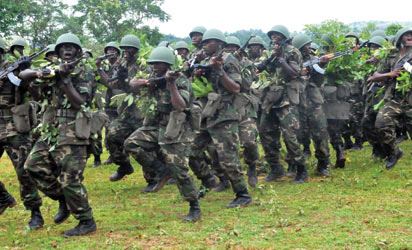A Thousand Six Hundred and Fifty (1,650) personnel Economic Community of West African States (ECOWAS) Standby Force (ESF), is to commence sub-regional counterterrorism action in 2026, after ECOWAS Ministers of Finance and Defence met and agreed on modalities of funding, in Abuja, Nigeria.
The ECOWAS Commissioner of Political Affairs, Peace and Security – His Excellency (HE) Abdel Fatau Musah, revealed in an address on Monday 15 September 2025, at the opening ceremony of a 2-day binary meeting for the ECOWAS Commission, and two of its three Training Centres of Excellence (TCE) – the National Defence College (NDC), Nigeria, and the Kofi Annan International Peacekeeping Training Centre (KAIPTC), Ghana.
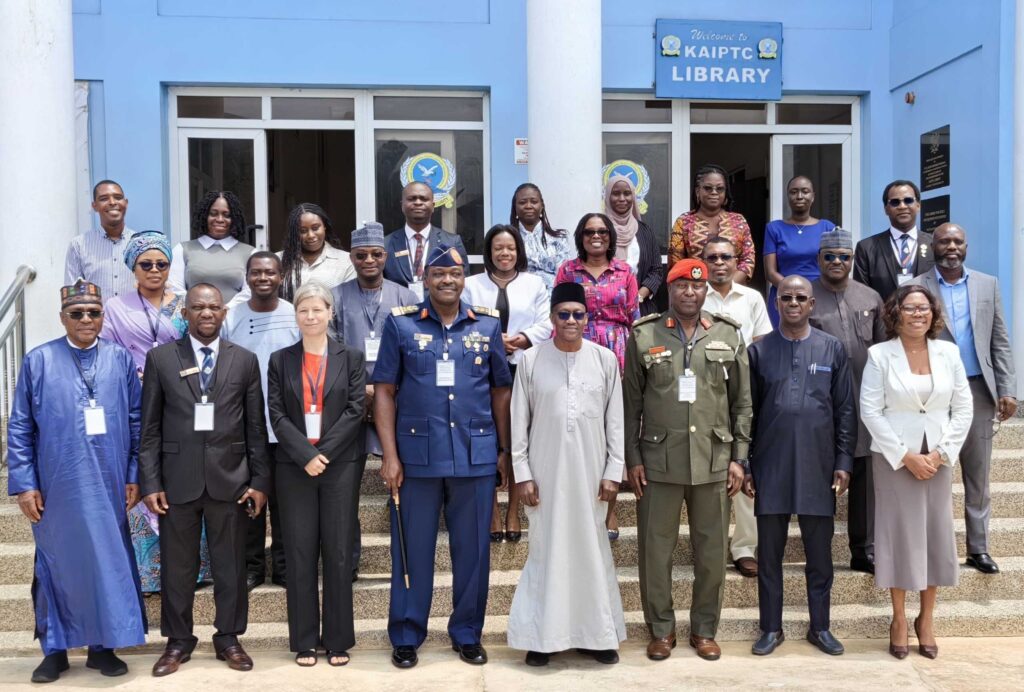
HE AF Musah added that the 1650 personnel force – which will be part of the anticipated 5000 ESF Brigade, and also as the West African Brigade of the African Standby Force – would be deployed as a Rapid Deployment Force, to support ECOWAS Member States, in their fights against terrorism.
Ambassador Fatau also stated that ECOWAS Heads of State and Government have responded to the terrorism menace by deciding that the ESF, and the ECOWAS Peace and Security Architecture, must scale up their activities, in order to respond to terrorism and violent extremism, as existential threats.
The binary meeting is to discuss issues of mutual importance, including modalities for enhancing technical and operational cooperation between the ECOWAS Commission and the TCEs in the areas of training, development and research.
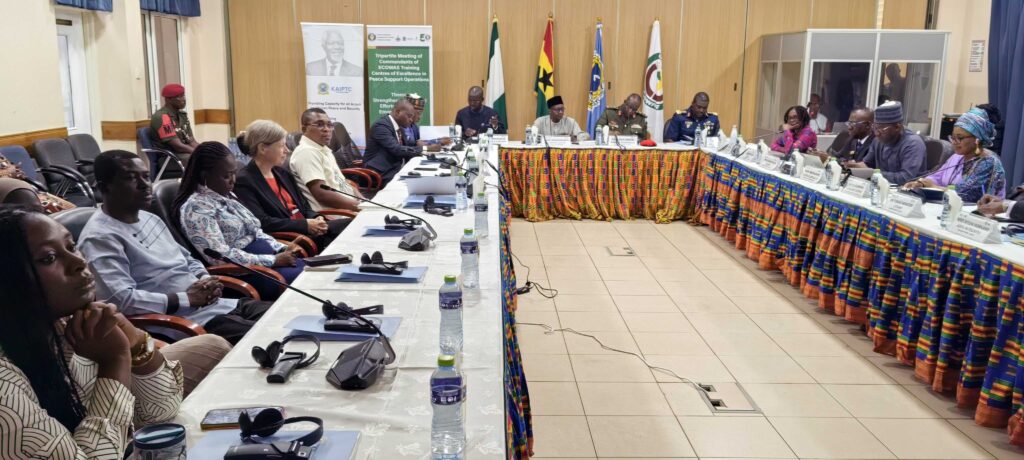
To sustain the operational readiness of the ESF, Ambassador Musah says the TCEs have supported training, preparation and evaluation for peace operations, and that based on lessons from missions in Guinea-Bissau and The Gambia, the TCEs will train personnel on Staff Officers Course (SOC), and Protection of Civilians (POC).
He further stated that the decision by the Ministers, when approved, would then set in motion the actual activation of the counterterrorism force, where all the training done over the years by the TCEs, would come in handy towards equipping and deploying the ESF, to fight terrorism in the West African sub-region.
He stated the obvious, that terrorism, counter-terrorism, and violent extremism now defines the conflict environment in the West African region, assuming an asymmetric trend not only in the epicenter in the Sahel, but also has coastal countries increasingly facing threats, with terrorist activities in Mali moving from the north to the center, and towards the western borders with Mauritania, and Senegal.
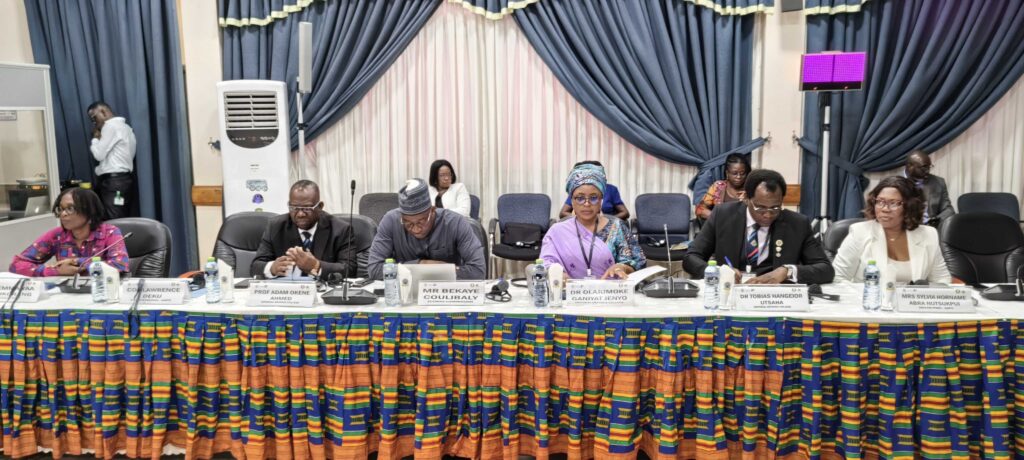
He added that the TCE Commandants’ meeting is critical to ECOWAS, as it provides its Commission and the TCEs, with the opportunity to discuss issues of mutual interest to both parties, in operationalizing the ECOWAS Peace and Security Architecture.
He stated also that it would be purposeful for the meeting to discuss the modalities for enhancing technical and operational cooperation between the ECOWAS Commission and the TCEs, in training, development and research, taking into consideration the sub-region’s evolving peace and security situation, and the critical needs of ECOWAS armed forces.
The SOC and POC training courses, he said, are in line with capacity needs assessment of the ESF, conducted between the ECOWAS Commission and the TCEs in April 2025, under the auspices of the ECOWAS Peace and Security Governance Project.
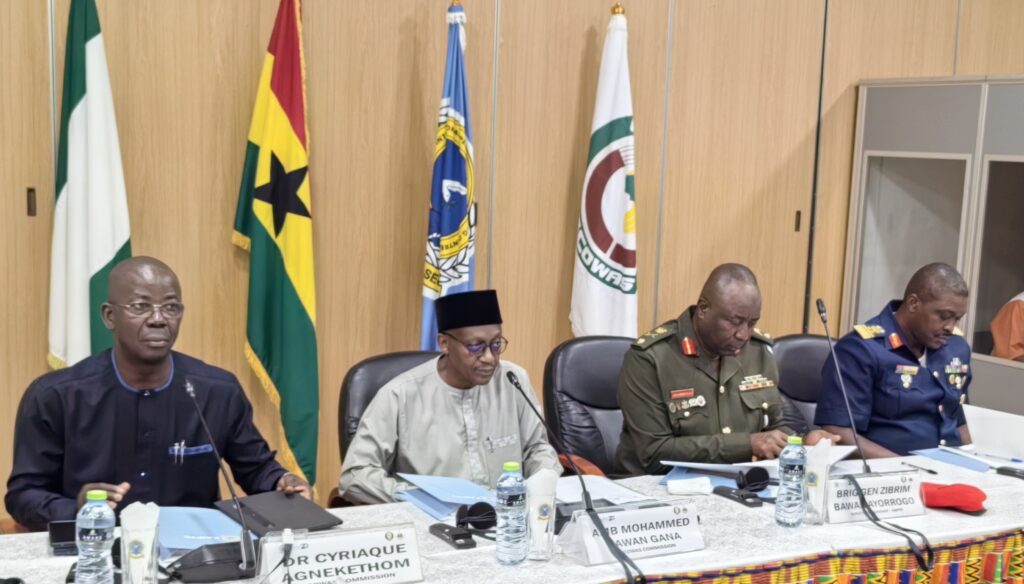
Issues on the table for discussion in the meeting include the review of the developments since last meeting, update on the ECOWAS Peace and Security Governance Project, to include the capacity needs assessment and the September 2025-June 2026 Web Program Update on the efforts to review the Memoranda of Understanding between ECOWAS TCEs, and role of TCEs in activating the ESF.
The Deputy Commandant, KAIPTC – Brigadier General (Brig Gen) Ziblim Bawa Ayorrogo said, the ECOWAS TCEs bear a collective responsibility to ensure that their institutions remain responsive, innovative and collaborative, and that work done in capacity building, research and policy engagement, must continue to reflect the realities on the ground, and anticipate needs.
He said the meeting would aspire to identify key areas for synergy; agree on practical steps towards a more unified and effective training ecosystem, in support of the ECOWAS peace and security mandate; reaffirm shared vision for sustainable West African peace; reflect on shared progress; exchange best practices and lessons; and chart a path forward for deeper cooperation and strategic alignment.
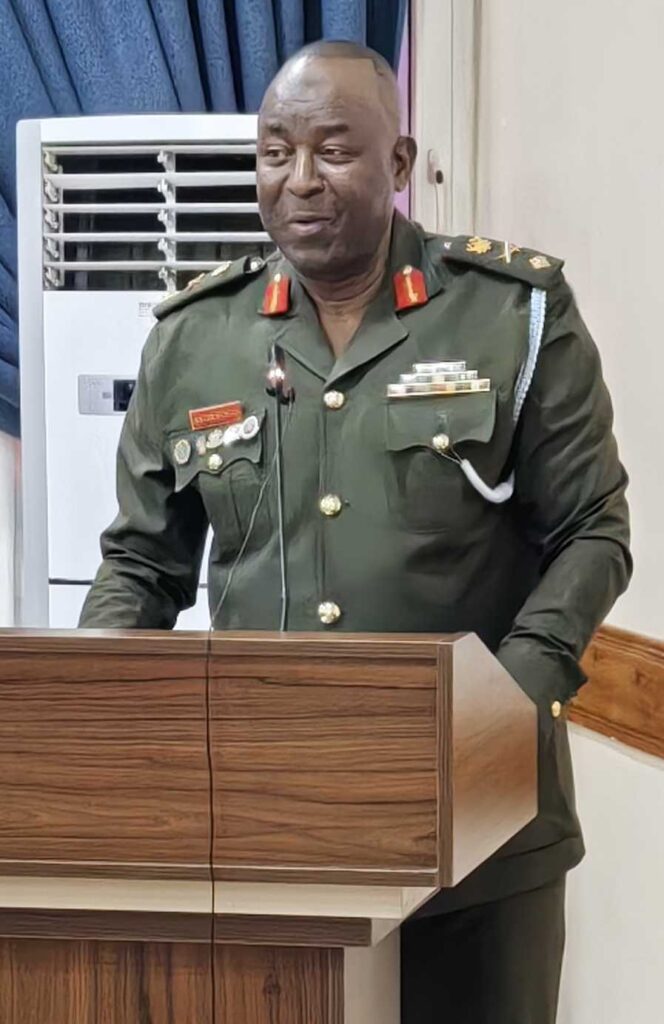
The Ghana Representative of the ECOWAS Commission’s President – Ambassador Muhammed Gana said the meeting would bolster the Commission’s valued collaboration with the TCEs, coming at a period of the unfolding new world order, and emerging existential threats.
He added that the evolving geopolitical and national political landscape, specifically the escalating security concerns within the Sahel region, now precipitate in the coastal states, thus calling for a renewed focus and political will to address the underlying root causes of instability, and strengthen peace and security architecture.
“Given the rapidly changing global environment and the advent of the Fourth Industrial Revolution, a reactive approach to crisis management is no longer sustainable. We must proactively anticipate and address potential threats to mitigate risks before they escalate, thereby ensuring the successful realization of our regional integration trajectory”, he said.
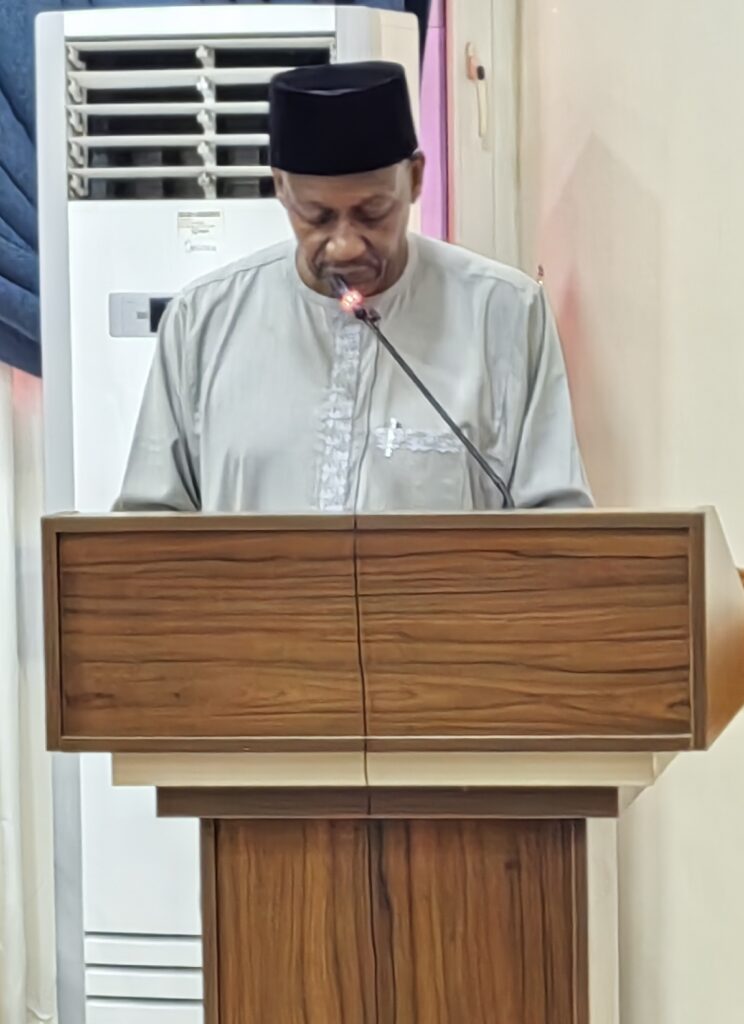
Present at the opening ceremony included the Representative of the Commandant of the National Defence College – Air Vice-Marshal Ayodele Ibrahim Hanidu; Director of the Peacekeeping and Regional Security, ECOWAS Commission – Dr Cyriaque Agnekethom; and Senior Staff Officers of the ECOWAS Commission, KAIPTC, and the NDC.
By Kofi Ampeah-Woode
